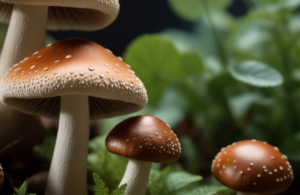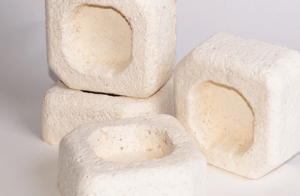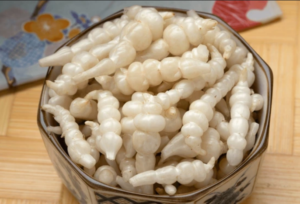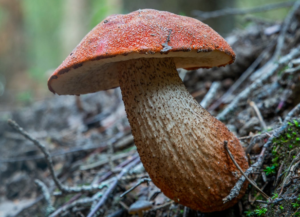Lion’s Mane has become a buzzword in the realm of nutrition and nootropics ( brain health enhancement ) in general. In this comprehensive article, we delve into the intricacies of Lion’s Mane as a superfood, exploring its origin, nutritional profile, and the scientific evidence supporting its touted benefits.
Origins and Appearance

Lion’s Mane, scientifically known as Hericium erinaceus. It is a unique mushroom characterized by its striking resemblance to a lion’s mane, hence the name. It is native to Asia, Europe, and North America. Lion’s Mane has been a staple in traditional medicine for centuries, particularly in Chinese and Japanese cultures. Lion’s Mane has gained widespread attention in recent years and has gained a lot of traction for its remarkable brain-healing properties.
Nutritional Composition

Lion’s Mane’s nutritional profile is as distinct as its appearance. It is rich in protein, fiber, vitamins, and minerals and contributes significantly to a well-balanced diet. One notable thing about this mushroom is that it is a rich source of antioxidants, including beta-glucans and hericenones. These compounds are known for their potential to support immune function and reduce oxidative stress.
Cognitive Benefits

Now, coming to what most of you are here for, cognitive health. Scientific studies suggest that the mushroom contains compounds that may stimulate the growth of nerve cells and support overall brain function. As a nootropic, Lion’s Mane is particularly effective in stimulating the Nerve Growth Factor (NGF) in the brain. Research has also explored the potential use of Lion’s Mane in fixing cognitive disorders, including Alzheimer’s disease and dementia. It has also been shown to reduce anxiety and depression. While more extensive studies are needed, early findings are encouraging.
Immune System Support
While its cognitive benefits are what they are mainly popular for, Lion’s Mane is believed to support the immune system too. As discussed earlier, it helps fight oxidative stress and reduce inflammation. The beta-glucans found in the mushroom might boost the functioning of immune cells leading to a stronger immune system. Given the challenges of modern living, this becomes a boon for us.
How to Incorporate Lion’s Mane into Your Diet

Lion’s Mane can be enjoyed in various forms, making it easy to incorporate into everyday meals. It is a real food, rather than merely a supplement. It can be sautéd and stir-fried into a wonderful dish. Next comes brewing and its use in tea and coffee. You can find lots of coffees that are now supplemented with lion’s mane. And finally, lion’s mane as a supplement is abundantly flooded in the market. You can find it in all consumable forms, from lion’s mane powder to capsules.
Considerations and Precautions
Lion’s Mane is generally considered safe for most people. If you are sensitive to mushrooms or have any allergies then you must take precautions. This goes without saying for any supplement. When in doubt, always make sure to consult your health provider.
Conclusion
With all the myriads of cognitive and health benefits, Lion’s Mane is a superfood. While the scientific community is busy exploring its full potential you can continue integrating this mushroom into your diet. Let us know your experience with this food and suggest your favorite way of consuming it, in the comments below. As usual, we would love to hear your feedback!





